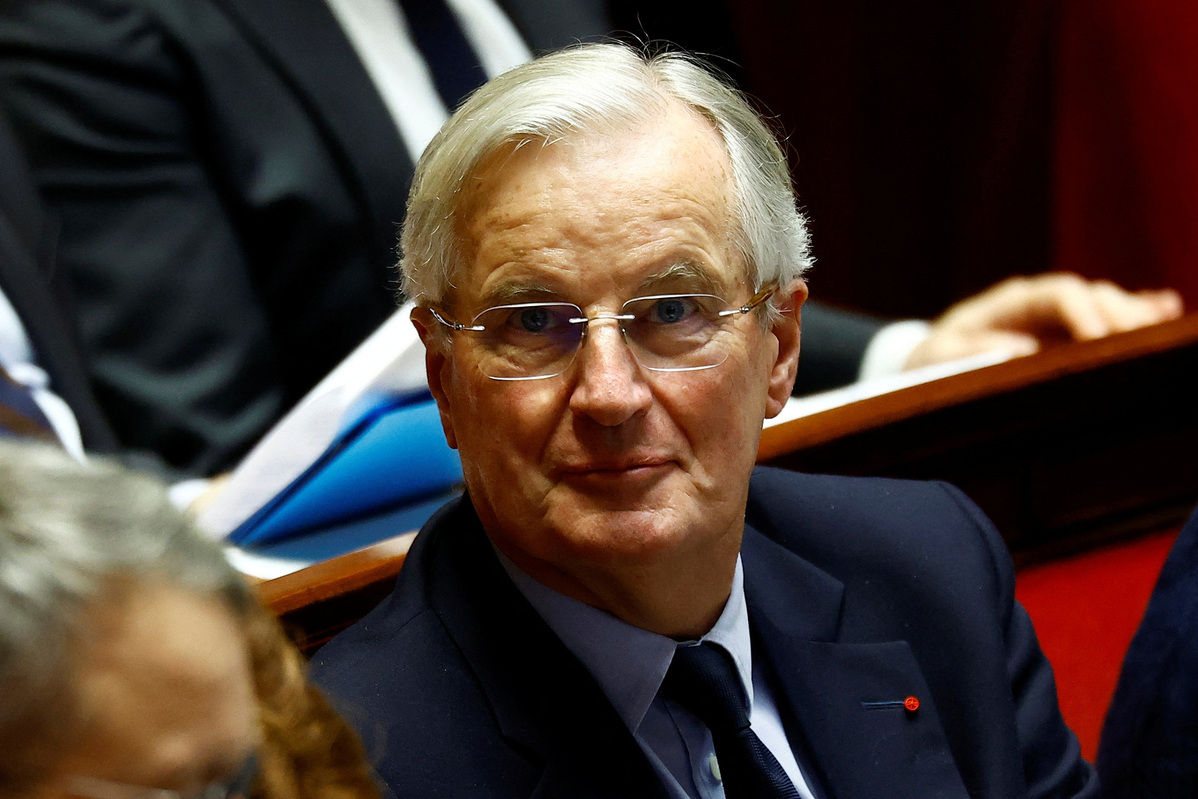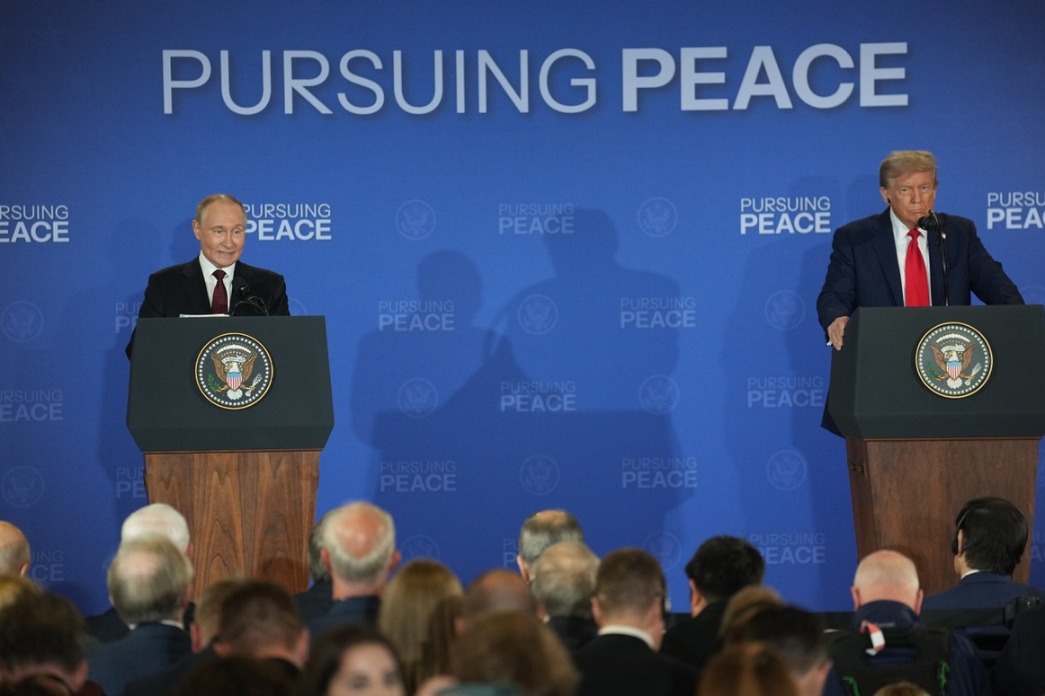Budget chaos may end Barnier's govt in a matter of days
By Mohammad Arif ULLAH in Paris For China Daily | chinadaily.com.cn | Updated: 2024-12-04 02:43

The administration of France's Prime Minister Michel Barnier appears destined for a dramatic end this week, as a no-confidence vote looms in parliament.
The vote, prompted by widespread opposition to Barnier's controversial handling of the budget, could dissolve his government after only three months in power.
The political standoff has raised fears of economic instability in France, the eurozone's second-largest economy. Financial markets are on edge, while opposition leaders are adamant about forcing Barnier's exit.
Meanwhile, France's President Emmanuel Macron faces mounting pressure to appoint a new prime minister, although fresh elections remain off the table for now.
At the heart of the crisis lies Barnier's decision to invoke Article 49.3 of the French Constitution to push through a social security financing bill without parliamentary approval. While legal, this bypassing of the National Assembly has enraged opposition groups across the political spectrum.
Marine Le Pen's far-right National Rally and the leftist New Popular Front coalition have both pledged to support a no-confidence motion against the government.
"The French have had enough of this treatment," Le Pen said in a news briefing on Monday. Her party has tabled its own motion, which, combined with the left's, makes Barnier's fall highly likely.
Political scientist Benjamin Morel told France Info TV on Tuesday: "This is not just about the budget. It's a reckoning with Barnier's leadership and Macron's broader governance strategy. The no-confidence vote is almost inevitable."
Barnier's downfall could deepen France's fiscal woes. With the country's public deficit projected at 6.1 percent of GDP this year and debt levels high, the rejection of his budget proposals for 2025 could delay much-needed financial reforms.
Budget Minister Laurent Saint-Martin has warned that without decisive action, the deficit might surge to 7 percent of GDP.
Financial markets have already reacted negatively. On Monday, France's CAC40 stock index fell by 0.2 percent. Credit rating agency S&P maintained France's rating last week but cautioned that prolonged political uncertainty could harm the country's economic outlook.
On France 5's It's in the Air show on Monday, financial expert Philippe Dessertine noted: "The world cannot afford a crisis stemming from France right now. But if this turmoil continues, even with all their efforts, the French might stumble into one."
Complicated future
If Barnier loses a no-confidence vote, Macron will need to appoint a new prime minister. However, political fragmentation in the National Assembly will complicate the process.
Macron's centrist coalition holds limited sway against the powerful blocs of the far-right and the left-wing alliance, making any new government's survival tenuous.
Macron cannot call for fresh parliamentary elections until next summer, as the constitution restricts snap elections to once a year.
Christophe Barbier, a political analyst for BFMTV, commented in an interview with France 5 TV station on Monday: "Barnier's Brexit-style concessions — offering small compromises to everyone — failed because the opposition has one goal in mind: the 2027 presidential election. He underestimated their resolve."
The situation is further complicated by calls for Macron to step down. Olivier Faure, leader of the Socialist Party, urged the president on Tuesday via RMC radio to "appoint a left-leaning prime minister who can bridge the political divide".
The ramifications of the political crisis extend beyond economics. General Vincent Desportes, speaking on RMC radio on Tuesday, expressed concerns about the military's budget, stating: "This is a severe blow to our armed forces. Voting for censure now is irresponsible."
Meanwhile, social unrest is brewing, as public discontent over purchasing power and government spending cuts intensifies. A recent Ipsos survey found that 70 percent of French citizens feel their living conditions are deteriorating.
Barnier's potential departure would mark the shortest tenure for a French prime minister since the Fifth Republic was established in 1958. Yet, his fall is unlikely to resolve the deeper political crisis engulfing France. Macron's search for a new leader capable of navigating these turbulent waters will be a daunting task.
"France is at a tipping point," said Benjamin Morel in the same interview with France Info TV. For him, "the next few weeks will determine whether this political chaos turns into a lasting crisis for the country and Europe".
























